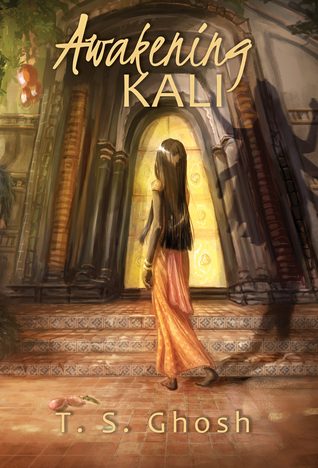 Disclaimer: I got a free electronic copy of this book in exchange for an honest review.
Disclaimer: I got a free electronic copy of this book in exchange for an honest review.
This review contains spoilers.
From the description, I thought Awakening Kali would place me in a fantastical / magical / supernatural story where a young women was cursed by the God Kali and would have to overcome trials and tribulations. While that was correct in some respects, in others my assessment was about mostly wrong. While the curse of Kali frames the story, the journey of Chhaya and her family goes much deeper and engages the reader to listen to an experience of a woman heavily impacted and socialized by her culture.
The first part of the book to me felt like a generic tale of a young woman in India around the time of the Indian Independence movement, dealing with… well life. Born as the fourth daughter, Chhaya seems more like a burden for her family than a blessing. She does not fit the Indian standard of beauty and is reminded everyday by her mother and the presence of her three sisters. The first half actually moves very fast and before the reader knows it, Chhaya has been married and starts having children with her husband Arun. At first, I thought the characters did not have enough development but the author did a fantastic job at including scenes that have subtle importance and foreshadowing of the second part. The turning point of the story is a scene at home when Chhaya is pregnant with her daughter Shobha and trying to keep her household together. She is attempting to control her children and make sure her home is clean for a visitor coming later. Finally, the stress and pressure is too much and as a result, Chhaya ends up breaking her statue of Kali and receives a curse that will impact her for life. Then I finally realized…
This book is about mental illness. This book is about spirituality. This book is about gender roles. This book is about internalized oppression. This book is about the systems of power that take all of that, and constantly oppresses Chhaya and her family. The main focus is mental heath and the devastating effects it can have on a family. Mental breaks can happen at almost any point in life and the combined pressures of Chhaya’s state provided an outlet for a break. Throughout the rest of the book, the author presented vignettes from Chhaya’s and Arun’s perspectives about living with mental illness, working through seemingly unforgivable incidents.
I saw the internalized oppression piece the most seep through in Chhaya’s relationship with her daughter Shobha. I do want to talk about this but it is a little of a spoiler:
The scene that strikes me the most is when Shobha is kidnapped and possibly sold into the sex trade. First, Chhaya is worried about her daughter but as soon as she is recovered, Chhaya disowns her as a daughter because she has been tainted by a lower class of people. Chhaya seems to be solely fixated on marrying her daughter off and the dowry it will cost, which is a direct reflection on her own experience as a young woman ready for marriage. Sometimes I think we expect those who experience a great injustice to act differently towards a person in a similar situation. Internalized oppression is an extremely powerful socialization and I think it is natural to indoctrinate those thoughts and ideas because it is all they know.
I mentioned the foreshadowing in my second paragraph and I realized only after finishing the book there were signs of Chhaya being differently abled. Even in the first chapter, it seems like Chhaya is dealing with mental health issues but had not experienced a mental break yet. In the scene with the mangos, I felt how (intentional or unintentional) she was directly devalued in something so simple as who gets to eat a fruit. I saw her affinity for the word Chhaya or shadow. I saw how the environment around her in all honesty saw her as a disappointment and burden. This is the first instance of self-harm, using her fingernails to cut her palms. And we see this theme throughout the book with other instances of self-harm and an attempt of suicide.
I appreciated the author’s note at the end of the novel. Awakening Kali is fiction based on a true story, a life, a voice from our world. She brings up a question – is this story really just one of mental health? And the real Chhaya pushes back on the author questions about mental health and spirituality. I wrote a lot before about the impact of mental health in this book; however, I cannot dismiss and invalidate the importance of belief and spirituality as truth. Awakening Kali is a subtle and in-your-face story about the intersections of family, mental health, non-western ethnicity/culture, socioeconomic status/class, gender/gender roles, spirituality, and healing. We need more books and authors who take on these real issues through a multicultural lens and we need to read these books to publicize them. I highly recommend Awakening Kali, a gripping read that will push your comfort zone.
Final rating: 4.2/5
Discussion
No comments yet.